The Days (2023)
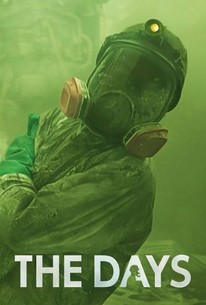
EPISODE LIST
SEASON 1
The Days
33%TOMATOMETER6 Reviews
67%AUDIENCE SCOREFewer than 50 Ratings
WHERE TO WATCH
 Subscription
SubscriptionRATE AND REVIEW
WANT TO SEE
EPISODES
1. The Fukushima Daiichi Nuclear Power Plant Is Submerged
Air date: Jun 1, 2023
On March 11, 2011, a tsunami hits the Fukushima Daiichi Nuclear Power Station, damaging one of the cooling systems.View Details
2. No Need to Evacuate
Air date: Jun 1, 2023
While still unable to get an assessment of the situation from Fukushima Daiichi, the government tells citizens to stay calm and remain in their homes.View Details
3. Radioactive Emissions Will Be Minimal
Air date: Jun 1, 2023
Pressure in the containment vessel starts to rise rapidly; with a catastrophic explosion imminent, TOEPCO suggests releasing the gas into the atmosphere.View Details
4. It Would Mean Turning Our Backs on Fukushima
Air date: Jun 1, 2023
With the power still down, the valves will have to be opened manually; with heavy hearts, some workers ask if they can evacuate to a safer location.View Details
5. Our Company Has Lost Its Mind
Air date: Jun 1, 2023
Station Manager Yoshida decides to use seawater as a cooling source, but TOEPCO headquarters tells him to wait for authorization from the administration.View Details
6. I Can No Longer Leave Here Alive
Air date: Jun 1, 2023
When pressure in the containment vessel finally starts to decrease, TOEPCO headquarters want on-site workers to get back to work, but Yoshida is wary.View Details
7. Decide the Conditions for Evacuation
Air date: Jun 1, 2023
As the administration and TOEPCO headquarters grow increasingly impatient, Station Manager Yoshida asks for permission to evacuate some on-site workers.View Details
8. A Scenario of Japan's Collapse
Air date: Jun 1, 2023
The prime minister is informed that in a worst case scenario, a third of the country, including the Tokyo area, will become uninhabitable for decades.View Details
Genres: History, Drama
Network: Netflix
Premiere Date: Jun 1, 2023
CAST & CREW
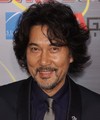
Kôji Yakusho
Masao Yoshida
Actor
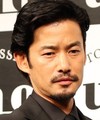
Yutaka Takenouchi
Maekawa
Actor

Fumiyo Kohinata
Azuma
Actor
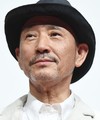
Kaoru Kobayashi
Furuya
Actor

Takuma Otoo
Kinoshita
Actor
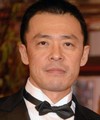
Ken Mitsuishi
Murakami
Actor
Show All Cast & Crew
All Critics (6) | Top Critics (1) | Fresh (2) | Rotten (4)
As a drama, The Days is too respectful: its desire not to leave anything out might result in tired viewers abandoning their posts.June 1, 2023 | Rating: 3/5 | Full Review…

Jack SealeGuardian
TOP CRITIC
But Chernobyl is one of the best historical dramas of recent memory, while The Days is a cheaply made, poorly written, off-brand imitation.June 14, 2023 | Full Review…

Martin BrownCommon Sense Media
Like the hulking symbol of arrogance at its centre, Netflix's mini-series about the Fukushima nuclear disaster also collapses under its own weight.June 10, 2023 | Full Review…
Rohan NaaharThe Indian Express
The longwinded and detail-oriented approach isn’t going to be for everyone, and those looking for more universal drama or meaty subtext – both of which Chernobyl had in spades – will find The Days somewhat lacking.
June 8, 2023 | Rating: 3/5 | Full Review…

Jonathon WilsonReady Steady Cut
... This one appeared to have been thrown together by the Japanese equivalent of the team that does the cheesy TV ads for DIY superstores.June 7, 2023 | Full Review…

James DelingpoleThe Spectator
The Days is tense and harrowing, just like the days after the Fukushima Daiichi accident were for pretty much the whole population of Japan.June 1, 2023 | Full Review…

Joel KellerDecider

Jonathon WilsonReady Steady Cut
... This one appeared to have been thrown together by the Japanese equivalent of the team that does the cheesy TV ads for DIY superstores.June 7, 2023 | Full Review…

James DelingpoleThe Spectator
The Days is tense and harrowing, just like the days after the Fukushima Daiichi accident were for pretty much the whole population of Japan.June 1, 2023 | Full Review…

Joel KellerDecider
View All Critic Reviews (6)
AUDIENCE REVIEWS FOR THE DAYS: SEASON 1
9h ago
This series kept my attention from the very first minutes of the first episode through all eight seasons! I plan to watch it again. Excellent production!

Janet S
2d ago
I think people who gave this a low score are people who are impatient and easily bored with problem solving. This is a mockumentary based on true events, and the focus tragedy revolves around the Fukushima Daiichi disaster that occurred in 2011. That being said, the focus is not entirely regarding the tsunamis themselves, but the chaotic aftereffect that cost many lives, and put the reactors powering nearly all of Japan in an unwarranted highly complicated spot.
This means that the only thing this series focused on is how they worked toward reducing the worst possible outcome.
This is slow, takes critical thinking, comes with a lot of risk. For those who know the outcome afterward, and a few years later, we already know what to expect. However for those who probably didn't invest any of their time looking into the 2011 tsunami tragedy in Japan, this is all new information. I've realized that most people, who take on the profession of reviewing shows or movies for the general public, have become too obsessed with high paced, action packed shows or movies that offers no cognitive effort to keep watching.
The Days not only informs the audience, it teaches, and it keeps us at the edges of our seats constantly. Working around compromised by nuclear reactors is one thing, working around 5 compromised reactors after a powerful earthquake, a massive tsunami, no energy and flooded, is the worst case scenario.
The entire series delivers well paced moments, it provides a first hand perspective. When they're terrified, we're terrified. When they're anxious, we're anxious. When they're shocked, we're shocked. When there's a moment to feel sorry for them, knowing their ultimate plight, the show delivers, providing us the somber ugly truth behind something this horrendous. Something that no one would want to deal with. It's horror, but the reality of what took place.
It's worth acknowledging and respecting that, and it was properly executed, and that's something to absolutely admire when it comes to a true tragedy. For those who don't know much about nuclear reactors, or who probably never cared to learn about Chernobyl or 3 Mile Island, this show will definitely be difficult to follow. They don't explain that the ash falling isn't snow or simply ask, it's from the fuel rods, graphite, within the reactors. When this touches skin, it's extremely dangerous, as this is constantly coming into contact with high levels of radiation.
In Chernobyl, after the reactors explosion, residents from Pripyat stood at a bridge and admired the ash falling that closely resembles snow. Everyone on that bridge died shortly after from Radiation Sickness. So telling the audience what certain things mean, especially to narrow minded professionally hired reviewers who think themselves so high and mighty, would have helped provide a better score. If you're too easily bored with well paced shows, that offers breathing space to think for yourself and map out multiple outcomes, then this isn't for you. You'd do better off watching something that doesn't require much patience or thinking.
I'm personally tired of watching things that doesn't allow me to properly think or feel, the cringey regurgitated shows being churned out for easily entertained audience members. This series is not Chernobyl, and constantly comparing its pacing is in poor taste. You have to remember that Chernobyl was focused around the single reactor that exploded. Fukushima was dealing with multiple reactors all at once, and destroyed foundations because of an intense earthquake which made travel and access extremely difficult.
It takes a lot of mind juggling to get around this when there's no electricity. So why even compare it to HBO's Chernobyl? Why prove that you're just impatient and want something to breeze through by admitting that you were expecting 'something like' HBOs Chernobyl?
Reviewers also seem rather close minded by assuming that every culture behaves in certain ways or share mannerisms. If you don't know much to anything regarding Japanese culture, why take a hit on the pacing or acting?
All in all this was a beautiful series. From beginning to end. You can tell they were inspired from the HBO series Chernobyl in the way they executed all of this. Acting is great, filming was great, music was great. All in all, a perfect mini series to watch and learn from, and a proper means to respect and honor those who worked hard to save Japan and neighboring countries. 10/10.
SHOW MORE

Mel R
2d ago
Rated more like 2 1/2. It's long, boring, repetitive, poorly-acted (imo), poorly cut, and WAY too long. Needed better direction, writing and LOTS more cutting. 8 episodes? Puhleeze ... should have been 3 episodes TOPS. Coulda' been great. Swing and a miss.

Leland O
3d ago
Nowhere near as good as Chernobyl. This should have been 3 episodes top. Drags on way too long and gets hung up on too much boring detail. The slow motion shots are overdone. There is some good drama here though. It's just not consistent.

Rob R
5d ago
Made it through two episodes and quit. Does a poor job of conveying the drama of the situation.

Patrick S
Jun 08, 2023
No debería opinar sobre la trama o la historia, pero como representaron los sucesos fue excelentes además de los efectos especiales.

Renato P
Jun 07, 2023
exelente documental, con mucha informacion interesante basteante veras en lo que quiere transmitir de una tragedia

Manticore J
Jun 06, 2023
Its an excellent show until we compare it with chernobyl, which we should not in the first place because both has very different factors influencing them like nation, time, existing technology, geography, politics etc.but I did compare it anyway at the end because both are about nuclear accident.
So, my review will be based on comparing both tv shows.before reading further, know that it is my personal opinion and I will be comparing "2 different planets"; planet chernobyl and planet Fukushima.
When Chernobyl gave importance to the causes and impact of the disaster as much as it gave importance to the measures and remedies they took to reduce the effects of the disaster and explosion, the days series focuses more on the efforts japan did to stop the disaster.
It's True, that they shows what was also done after the disaster and what remedies they took after the nuclear leak, but Chernobyl succeeded in showing both the before explosion and after explosion scenarioin the best and effective way possible.But again, the reason the japanese show does that is also justifiable.
It gives us clarity that japan did everything that japan could to avoid the disaster. to sum up, " the days " show has more documentary characteristics and is a bit lagging <<compared>> to the chernobyl series, but, it also gives us clarity how effectively japan does the 'task at hand' during the disaster compared to russia. This japanese show itself is made to give idea to the world that how much effort japan did to stop the disaster.It is a must-watch show just like Chernobyl and nothing can change my mind about that one.
SHOW MORE

Jo G
Jun 06, 2023
This show was so boring. It kept dragging on and on. It took forever to solve a single problem. This could of been a 2 hour movie.

alain l
Jun 05, 2023
a series that allows moments of deep sleep... long scenes that bore, somewhat overacted. The characters never have an idea of what they are doing or what is happening, in Chernobyl they had a better idea! at times it gets slow and predictable, nothing ever happens beyond earthquakes Just when you need it... you can easily go from chapter 1 to 8 and the story is perfectly understood. it will never be compared with Chernobyl. this is much lower.
SHOW MORE

Andres M
SHOW MORE

Jo G
Jun 06, 2023
This show was so boring. It kept dragging on and on. It took forever to solve a single problem. This could of been a 2 hour movie.

alain l
Jun 05, 2023
a series that allows moments of deep sleep... long scenes that bore, somewhat overacted. The characters never have an idea of what they are doing or what is happening, in Chernobyl they had a better idea! at times it gets slow and predictable, nothing ever happens beyond earthquakes Just when you need it... you can easily go from chapter 1 to 8 and the story is perfectly understood. it will never be compared with Chernobyl. this is much lower.
SHOW MORE

Andres M
===
===
The Days review: Netflix’s Fukushima mini-series lacks the artistry of Chernobyl
The Days review: Like the hulking symbol of arrogance at its centre, Netflix's mini-series about the Fukushima nuclear disaster also collapses under its own weight.
Written by Rohan Naahar
Follow
New Delhi | June 8, 2023 07:46 IST
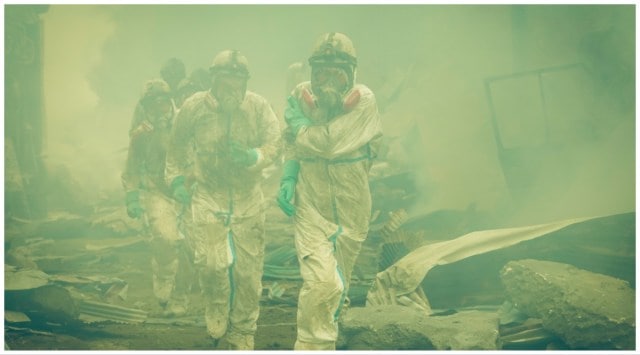
X
A still from the new mini-series The Days, based on the Fukushima nuclear disaster. (Photo: Netflix)
Detailed to the point of drudgery, Netflix’s The Days is a Very Serious Show about the 2011 Fukushima Daiichi nuclear disaster that gets so disappointingly lost in the weeds that it loses all sense of drama. Ostensibly a Japanese version of HBO’s seminal mini-series about the Chernobyl disaster — Fukushima and Chernobyl are the only two nuclear accidents classified as level five on the International Nuclear Event Scale — The Days lacks much of that show’s subtle artistry and clever socio-political sentiment.
As the title suggests, the eight-part drama is set in the days leading up to, during, and immediately after the accident, which was caused by a record earthquake that shook the very foundations of the nuclear plant, and resulted in structural damage that would quickly have a cascading effect. Veteran actor Koji Yakusho (13 Assassins) plays the site manager Masao Yoshida — a middle-aged gent happy with a middle-management role that would’ve likely lasted him till retirement. He’s this show’s equivalent of Jared Harris’ Valery Legasov from Chernobyl (without any of the disillusionment and post-traumatic stress that perhaps led to Legasov taking his own life).
Also read | All of Us Are Dead review: Gory but genuinely heartfelt, Netflix’s zombie show is your new Korean obsession
It’s difficult to tell the exact timeline of events if you watch the show in one go. Episode one is designed as a typical disaster story; it ends with the earthquake and subsequent tsunami that set everybody on high alert. The next few episodes are dedicated to meticulous examination of the damage, the careful observation of rising radiation levels, and concerned planning about how to handle a potential fallout. By the time the reactor actually explodes in episode six — this was the inciting incident in Chernobyl, by the way — you’re either going to be mostly confused by all the detail that the show has been insisting you pay attention to, or too tired to continue.
But this curious structural decision is a key to engaging with The Days on its own terms. Unlike Chernobyl, which was mainly concerned with the consequences of not only a nuclear disaster but governmental deceit, The Days unfolds like an homage to individual heroism. And so, much of its run time is devoted to recreating, in great detail, the small missions that the plant’s workers undertook to — sometimes literally — close the nozzle on the damage.
But here’s the problem. Chances are that you still remember when a bunch of naked men entered the blast radius in Chernobyl to carry out an all-important mission that they knew would likely kill them. You probably also remember that harrowing scene in which Barry Keoghan murdered animals in an effort to contain the spread. But The Days has so many sequences involving groups of hazmat-clad men trudging in the dark, looking intensely at metre readings, and screwing valves that after a point, they all begin to blend into one another. We get no sense of who these people are as individuals, or why they want to participate in these kamikaze missions, and the show isn’t concerned about that either. Nor is it tempted to step outside ground zero and reveal how nearby communities are reacting to the developments. Each of its eight episodes is mostly restricted to rooms, large and small, opulent and spare, cramped and capacious.
What stands out, however, is Yoshida’s quiet evolution from a mild-mannered paper-pusher into a true wartime general. His big moment comes when he ignores official orders to stop showering the destroyed reactor with seawater — a strategic move that averted a massive catastrophe. In one scene, Prime Minister (Fumiyo Kohinata) is gravely informed that if the fault-lines aren’t repaired, a third of Japan, including Tokyo, could be affected by radiation.
While Chernobyl was mostly disparaging towards all forms of authority — it was, after all, a show about bureaucracy — The Days doesn’t have any particularly strong statements to make about how the situation was handled. Even the regular press conferences through which officials communicated latest updates about the relief efforts reveal their confusion more than any sort of complacency or moral corruption. In Chernobyl, the corner-cutting mentality of government servants was baked into the plot. This, primarily, was the reason behind the disaster. But in The Days, the ‘villain’, at least in the early episodes, is nature itself.
ADVERTISEMENT
Read more | Narco-Saints review: Netflix’s newest Korean thriller is a derivative downer
Somewhat counterproductively, the show’s best sequence is its last. This is when it’s central theme is communicated via an effective montage charting Japan’s post-war economic growth. The show also manages to find time for some philosophical rumination about the hubris of man, and the all-consuming power of nature. In many ways, The Days could be a nice companion piece to another piece of Japanese pop-culture about the corrosive allure of greed and ambition: Godzilla.
Co-directed by Masaki Nishiura and the rather well-respected Hideo Nakata — he was one of the strongest voices of the J-horror movement that swept the world two decades ago — The Days has little authorship; it feels more inspired by older disaster stories than an individualistic piece of storytelling. But most unfortunately, like the hulking symbol of arrogance at its centre, it, too, collapses under its own weight.
The Days
Creator – Jun Masumoto
Cast – Koji Yakusho, Yutaka Takenouchi, Fumiyo Kohinata
Rating – 2.5/5
© IE Online Media Services Pvt Ltd
===
===
Home » Streaming Service » The Days Season 1 Review – A respectful retelling too bogged down by details
The Days Season 1 Review – A respectful retelling too bogged down by details
June 1, 2023Jonathon Wilson0
Netflix, Streaming Service, TV, TV Reviews
Previous EpisodeView allNext Episode
This review of the Netflix series The Days Season 1 does not contain spoilers.
Chernobyl on HBO was such a masterful limited series that it has, in a roundabout way, ruined similar stories for everyone else.
One can scarcely imagine a more similar story that The Days, an eight-part Netflix retelling of the 2011 Fukushima nuclear disaster. The circumstances aren’t quite the same – Chernobyl was, after all, largely the fault of Cold War paranoia, secrecy, and cost-cutting – but its broad strokes are mightily similar, from the extraordinary tension on the cusp of calamity to disaster striking, and the brave attempts at keeping that calamity contained.
It’s an important story rich in detail, treated with respect. It just isn’t as good of a TV show as Chernobyl, and it’s very hard to overlook that fact.
The Days Season 1 review and plot summary
On March 11, 2011, an extraordinarily powerful earthquake under the sea off Japan’s east coast cut off the mains electricity supply to the Fukushima Daiichi nuclear plant and subsequently flooded the station. With the emergency diesel generators out of action, the plant’s nuclear reactors overheated to the point of total meltdown.
The Days explores these circumstances, the self-sacrificial efforts to prevent the disaster from worsening, and the extreme resourcefulness that human beings will show in the face of danger and death. But the show’s impersonal approach and fascination with details also bogs it down somewhat, taking great pains to include every relevant number, fluctuating dial, and horrifying factoid, but leaving human depth and drama somewhat by the wayside.
Don’t get the wrong idea – The Days is a deeply respectful and sometimes impressively-crafted experience. The tsunami is brought to terrifying life, and the show’s ability to ratchet up tension through its rapidly worsening disasters and complexifying circumstances is often profound. But it’s also too long, and its documentarian’s eye for figures is at odds with dramatic pacing.
Is The Days good or bad?
It also feels, dare I say it, a little reiterative, both of the aforementioned Chernobyl and even, in later episodes, itself. The real-life disaster certainly involved people performing essential functions that were akin to suicide; exposing themselves to deadly levels of radiation, turning valves, wading through debris, and so on, and so forth. And it mustn’t be understated what tremendous selflessness and bravery that entails, not to mention what a horrifying responsibility it is to decide, in essence, who lives and who dies.
Find where to watch this and more with our Discovery ToolExplore Now

But there must be a better way to highlight this than to include a similar scenario in every episode. Eventually, so much misery and heroism in such proximity begins to feel, lamentably, like one thing after another.
Is The Days worth watching?
I can’t in good conscience not recommend The Days, though, especially considering how good Koji Yakusho does as the plant’s manager Yoshida – it’s as fantastic a portrayal of escalating plate-spinning mania as has been committed to the screen in quite some time and is the primary anchor that keeps The Days weighed to a sense of real humanity.
But I must advise caution. The longwinded and detail-oriented approach isn’t going to be for everyone, and those looking for more universal drama or meaty subtext – both of which Chernobyl had in spades – will find The Days somewhat lacking.
This aside, though, the Netflix limited series remains an important story, told well, but perhaps just a little too fearfully for its own good.
What did you think of The Days Season 1? Comment below.
You can watch this series with a subscription to Netflix.
3
Summary
The Days dramatizes the 2011 Fukushima disaster in much the same way as Chernobyl depicted its own nuclear meltdown, but Netflix’s effort isn’t half the drama HBO’s was.
Additional reading:The Days Season 1 Ending Explained
Will there be a Season 2 of The Days on Netflix?
Home » Streaming Service » The Days Season 1 Review – A respectful retelling too bogged down by details
The Days Season 1 Review – A respectful retelling too bogged down by details
June 1, 2023Jonathon Wilson0
Netflix, Streaming Service, TV, TV Reviews
Previous EpisodeView allNext Episode
This review of the Netflix series The Days Season 1 does not contain spoilers.
Chernobyl on HBO was such a masterful limited series that it has, in a roundabout way, ruined similar stories for everyone else.
One can scarcely imagine a more similar story that The Days, an eight-part Netflix retelling of the 2011 Fukushima nuclear disaster. The circumstances aren’t quite the same – Chernobyl was, after all, largely the fault of Cold War paranoia, secrecy, and cost-cutting – but its broad strokes are mightily similar, from the extraordinary tension on the cusp of calamity to disaster striking, and the brave attempts at keeping that calamity contained.
It’s an important story rich in detail, treated with respect. It just isn’t as good of a TV show as Chernobyl, and it’s very hard to overlook that fact.
The Days Season 1 review and plot summary
On March 11, 2011, an extraordinarily powerful earthquake under the sea off Japan’s east coast cut off the mains electricity supply to the Fukushima Daiichi nuclear plant and subsequently flooded the station. With the emergency diesel generators out of action, the plant’s nuclear reactors overheated to the point of total meltdown.
The Days explores these circumstances, the self-sacrificial efforts to prevent the disaster from worsening, and the extreme resourcefulness that human beings will show in the face of danger and death. But the show’s impersonal approach and fascination with details also bogs it down somewhat, taking great pains to include every relevant number, fluctuating dial, and horrifying factoid, but leaving human depth and drama somewhat by the wayside.
Don’t get the wrong idea – The Days is a deeply respectful and sometimes impressively-crafted experience. The tsunami is brought to terrifying life, and the show’s ability to ratchet up tension through its rapidly worsening disasters and complexifying circumstances is often profound. But it’s also too long, and its documentarian’s eye for figures is at odds with dramatic pacing.
Is The Days good or bad?
It also feels, dare I say it, a little reiterative, both of the aforementioned Chernobyl and even, in later episodes, itself. The real-life disaster certainly involved people performing essential functions that were akin to suicide; exposing themselves to deadly levels of radiation, turning valves, wading through debris, and so on, and so forth. And it mustn’t be understated what tremendous selflessness and bravery that entails, not to mention what a horrifying responsibility it is to decide, in essence, who lives and who dies.
Find where to watch this and more with our Discovery ToolExplore Now

But there must be a better way to highlight this than to include a similar scenario in every episode. Eventually, so much misery and heroism in such proximity begins to feel, lamentably, like one thing after another.
Is The Days worth watching?
I can’t in good conscience not recommend The Days, though, especially considering how good Koji Yakusho does as the plant’s manager Yoshida – it’s as fantastic a portrayal of escalating plate-spinning mania as has been committed to the screen in quite some time and is the primary anchor that keeps The Days weighed to a sense of real humanity.
But I must advise caution. The longwinded and detail-oriented approach isn’t going to be for everyone, and those looking for more universal drama or meaty subtext – both of which Chernobyl had in spades – will find The Days somewhat lacking.
This aside, though, the Netflix limited series remains an important story, told well, but perhaps just a little too fearfully for its own good.
What did you think of The Days Season 1? Comment below.
You can watch this series with a subscription to Netflix.
3
Summary
The Days dramatizes the 2011 Fukushima disaster in much the same way as Chernobyl depicted its own nuclear meltdown, but Netflix’s effort isn’t half the drama HBO’s was.
Additional reading:The Days Season 1 Ending Explained
Will there be a Season 2 of The Days on Netflix?
No comments:
Post a Comment